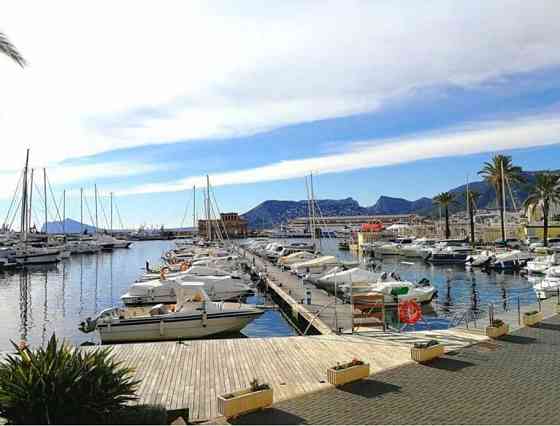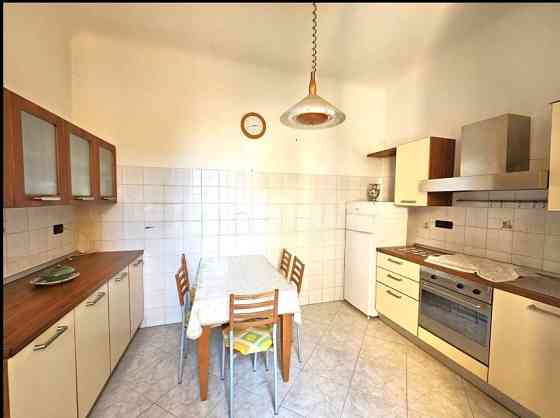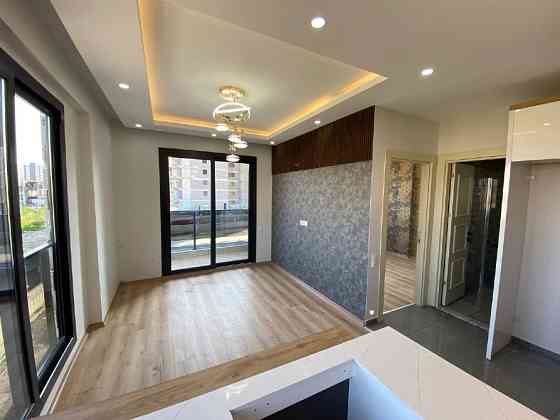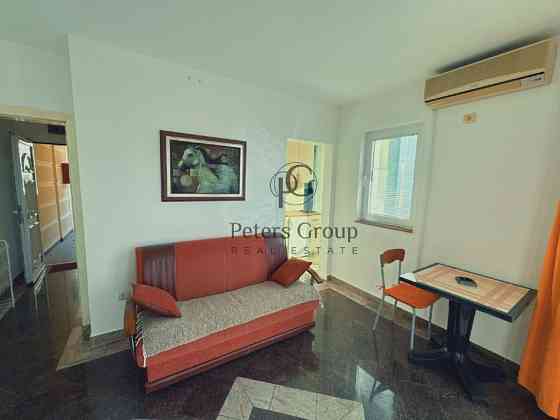
Digital Nomad Visa: revolutionizing international work and travel, benefits and the process of getting one
Previously, working from abroad was rare, but now it is becoming more common. Many countries have started introducing special visas and residency permits for digital nomads. If you do not need to visit the office to earn money, it is worth paying attention to these programs. Popular tourist destinations and warm resort countries stand out among them. You can go to an exotic island in the Caribbean or choose a place where you can work in the cooler weather.
Some programs do not require proof of income, while others are aimed at wealthy people. It is also worth considering that when living abroad for a long period of time (usually more than six months), foreigners become tax residents of the country of residence and must pay taxes. However, many programs offer exceptions to this rule. So, let's explore the possibilities and choose the right option.
Europe
- Andorra
The country has officially introduced a visa for digital nomads, which allows you to issue a residence permit for two years with the possibility of renewal according to the scheme: 2-3-10 years. The government plans to issue 100 visas per year. To obtain this status, you must work remotely in the technology sector (without income requirements), get approval from the government, as well as confirm the presence of real estate owned or leased for at least two years. In addition, you must be in the country for at least 90 days per calendar year. You will also need to prove that you have sufficient funds to live on, no criminal record, and health insurance. - Albania
The country gives foreigners working remotely, residence permit for a year, then it can be extended several times, and after five years of residence to get a permanent residence permit. To confirm the status, it is necessary to present a contract with an employer or customer abroad, as well as a permanent address, bank account and local health insurance. You will also need to prove that you have sufficient funds to live on. - Hungary
In November 2021, the country began offering “white cards ”1- a residence permit designed for digital nomads from outside the EU zone who work for an employer or earn business income outside Hungary. However, this residence permit does not allow bringing family members into the country. The card is valid for a maximum of one year and can be renewed once. The basic conditions for obtaining a “white card” are as follows: the applicant's income per month must be €2 thousand or more for six months prior to entering the country and maintained throughout the period of stay in Hungary. In addition to this requirement, it is necessary to prove the address of residence and take out health insurance. The fee for issuing a “white card” is €110. - Germany
The visa for self-employed foreigners in Germany (Aufenthaltserlaubnis für selbständige Tätigkeit), can also be suitable for remote work in the country. The freelancer visa is issued for three months, after which it is possible to obtain a residence permit for up to three years. The applicant for a residence permit must register with the local tax office and prove that his activities belong to the “liberal” category (journalists, designers, artists, consultants and other representatives of free professions). Foreigners must show that they have the financial security to live comfortably in Germany — at least € 1.2 thousand per month, and take out health insurance. It is also necessary to inform about the legal place of residence and register the address in the local registration office (Bürgeramt). To prove the necessity of his presence, the applicant must have clients from Germany. The initial visa costs €75-€100 and the fee for the residence permit costs another €100. - Greece
In September 2021, Greece passed Law 4825/2021, which regulates the issuance of residence permits for digital nomads. The visa will be issued for a period of 12 months. During this time, it is possible to apply for a two-year residence permit. Applicants must be working remotely with employers or clients outside Greece. In order to obtain a visa, applicants will need to prove a monthly income of more than €3,500 after taxes, as well as disclose the source of funds, take out health insurance and provide a contract for renting or buying a home in Greece. The new legislation allows third-country nationals to bring family members with them, but they will not be able to work in Greece. In this case, the minimum income is increased by 20% for the spouse and 15% for each child. The application fee is €75 and an additional administrative fee of €150 is required.Real estate in Greecetop hot 6
Individualtop hot
6
Individualtop hot 9
Apartment 2-room 2+1 in Chalkidiki (Kriopigi) 43m² seaside 1 floor
9
Apartment 2-room 2+1 in Chalkidiki (Kriopigi) 43m² seaside 1 floor43
2
1
1
1
Chalkidiki, Kriopigi, Chalkidiki, 630 77Individual 4
VRC - Vip Realty Club
4
VRC - Vip Realty Club 6
VRC - Vip Realty Club
6
VRC - Vip Realty Club - Georgia
The “Remotely from Georgia” program is designed for those who plan to move to the country for more than a year. The essence of the program is that foreigners staying in Georgia for 180 days or more become tax residents and are obliged to pay taxes. Remote workers, freelancers and business owners can move to Georgia under this program. They are required to provide health insurance and prove income of $2,000 or more per month. - Iceland
Remote workers can stay in Iceland for up to six months. To do this, you must present a contract with a foreign employer and prove income of €6,835 per month if you plan to come alone, and €8,886 if your spouse or partner is traveling with you. Health insurance and possibly a criminal record certificate will also be required. The cost of a visa is around €834. - Spain
On December 23, 2022, Spain enacted a new visa for remote workers, the International Teleworking Visa. This visa is issued for one year with the possibility of renewal. Subsequently, before the visa expires, it is possible to request a residence permit for remote work, which will be valid for up to three years with the possibility of renewal for a further two years if the conditions are met. Applicants must provide documentary evidence that they work remotely for a company outside Spain using a computer, telephone or other telecommunication means. It is also necessary to have relevant professional knowledge (university degrees or at least three years of work experience). The employer must have existed for at least one year and the foreigner must have worked for the company for at least three months. There are minimum income requirements — 200% of the minimum monthly wage in the country. This is currently €2,334 per month for the main applicant, as well as €875 per month for a spouse and €292 per month for each additional family member. - Italy
The bill for the issuance of visas to digital nomads in Italy came into effect on March 22, 2022. The exact conditions for participation in the program are still under discussion, but it is already known that the visa will be granted for one year with the possibility of renewal. Applicants will have to meet minimum income requirements, but the exact amount has not yet been determined. It is expected that remote workers will also have to prove that they have suitable accommodation, health insurance and no criminal record.Real estate in Italy 12
VRC - Vip Realty Club
12
VRC - Vip Realty Club 10
Individual
10
Individual 6
Individual
6
Individual 11
Apartment 3-room 2+1 in Catanzaro 101m² seaside 6 floor
11
Apartment 3-room 2+1 in Catanzaro 101m² seaside 6 floor101
3
2
1
6
Catanzaro, Катанзаро, ул Этторе ВиталиIndividual - Cyprus
On October 15, 2021, the Council of Ministers of Cyprus approved the Digital Nomads Visa Program, which will allow employees and self-employed third-country nationals to work remotely on the island for one year, with the possibility of an extension of up to two years. Importantly, the original quota of 100 applicants was increased to 500 in March 2022. To participate in the program, applicants will need to prove employment or business activity abroad with the required level of income of at least € 3.5 thousand after tax (plus 20% for a spouse and 15% for a minor dependent). It is also necessary to obtain medical insurance for the amount of at least €30 thousand, submit a certificate of criminal record and the address of residence in Cyprus (rental agreement or apartment reservation). The cost of registration or extension of a temporary residence permit is €70. Registration in the register of foreigners — another €70.Real estate in Cyprus | North Cyprustop hot 10
Apartment 3-room 2+1 in Abu Dhabi (Abu Dhabi) 155m² seaside 10 floor
10
Apartment 3-room 2+1 in Abu Dhabi (Abu Dhabi) 155m² seaside 10 floor155
3
2
2
10
Abu Dhabi, Abu Dhabi, BRABUS islandIndividualtop hot 19
Apartment 2-room 1+1 in Mersin (Mersin (downtown)) 58m² seaside 3 floor
19
Apartment 2-room 1+1 in Mersin (Mersin (downtown)) 58m² seaside 3 floor58
2
1
1
3
Mersin, Mersin (downtown), Sahil Caddesi, 1More Emlaktop hot 20
Apartment 2-room 1+1 in Mersin (Mersin (downtown)) 55m² seaside 12 floor
20
Apartment 2-room 1+1 in Mersin (Mersin (downtown)) 55m² seaside 12 floor55
2
1
1
12
Mersin, Mersin (downtown), Gazi Mustafa Kemal BulvariMore Emlaktop hot 11
Best Home
11
Best Home - Latvia
Digital Nomad visa in Latvia can be obtained only by foreigners working in companies registered in the Organization for Economic Cooperation and Development (OECD). The visa is issued for one year with the possibility of extension for another year. The applicant must provide proof of employment outside the country, prove an income level exceeding 2.5 times the average salary of Latvian residents (about €2,857), indicate the place of residence in the country, take out health insurance with a minimum coverage of €42,600. Applicants cannot sponsor dependents on a digital nomad visa. The visa application fee is €60. - Malta
The Malta Special Residence Permit (NRP) is designed for digital nomads, freelancers with clients in other countries and foreign business owners. The long-term residence permit is issued for one year with the possibility of renewal twice, but the total period should not exceed three years. To obtain a residence permit, you must prove a monthly pre-tax income of at least €2,700 plus €255 per month for each dependent family member. A contract or other evidence of employment or business activity with income from abroad, health insurance and proof of permanent address in Malta must also be submitted. A basic security check will also be required. There will be an administration fee of €300. - Norway
The independent contractor visa allows remote workers and entrepreneurs to work in Norway for up to two years. To obtain the visa, the applicant must own their own business or work remotely for a company located outside Norway. It is also necessary to demonstrate relevant qualifications in their profession and provide proof of a Norwegian residence address. Applicants will need to prove an income of at least €35,719 per annum before tax. The visa application fee is €600. Important: The applicant must have at least one Norwegian client with a contract stating that the fee for services meets or exceeds the minimum wage for a locally qualified professional. - Portugal
Portugal offers a temporary residence permit (residency visa for independent work purposes or entrepreneurs) for freelancers and entrepreneurs for a period of one year, renewable for up to five years. This program is suitable for those who are already working with clients in the country. Before applying, freelancers need to obtain a tax number and open a local bank account, which implies a prior visit to the country or entry on a tourist visa and then contacting the SEF Migration Service.
The applicant must provide an employment contract or self-employed service contract, prove compliance with professional requirements if the profession requires specific qualifications in Portugal. It is important to have at least one contract or contractor in Portugal. The applicant must demonstrate a monthly income equivalent to four times the minimum wage in Portugal, which is approximately €2,820. In addition, proof of the place of intended residence is required. Health insurance and a criminal record certificate will also be required. The process of applying for a residence permit requires careful preparation and can take several months. The fee for issuing a residence permit is €90. - Romania
In January 2022, the Romanian government passed a new law allowing foreigners to obtain a six-month digital nomad visa. Applicants must have been employed abroad or own a company registered outside the country for at least three years prior to applying. Applicants must demonstrate a monthly income that is three times the average pre-tax salary in Romania, i.e. at least €3,700. This minimum income must be maintained for six months prior to and throughout the visa application. Applicants must also provide an employment contract or certificate of incorporation of a company abroad, health insurance and a criminal record certificate. The visa can be extended for a further six months if the requirements are met. The cost of the application will be around €120. - North Macedonia
At the end of January 2021, North Macedonia announced the development of a law on digital nomads, with the aim of attracting remote workers and startups. However, no more concrete information has been provided since then. - Serbia
In Serbia, it is possible to obtain a residence and work permit for a year for those whose income is between €3,500 and €3,500 per month before tax deductions. - France
France does not have a special program for digital nomads, but the country offers a long-stay visa for entrepreneurs and freelance professionals (long-stay visa). This visa allows freelancers to stay in the country for up to one year, provided they apply for visa confirmation no later than the 15th day after arrival. To obtain the visa, the applicant must demonstrate the required level of income of about €3,000 per month, provide a criminal record certificate, obtain health insurance and confirm the availability of housing in France. The consular fee for a long-term visa is €99. - Croatia
The Croatian visa for digital nomads is issued for up to one year and cannot be renewed. A new application can only be submitted six months after the expiration of the previous visa. The applicant must prove an income that is 2.5 times the average pre-tax salary in Croatia. In 2022, this amount was around €2,250. If there are dependents, the income threshold is increased by 10%. A contract with a foreign company, a criminal record certificate, health insurance and a residential address in Croatia will also be required. The applicant's immediate family members can move to the country on the basis of family reunification. Administrative fees are €157 for those requesting a visa from abroad and €87 for those already in the country. - Montenegro
At the end of 2021, the Montenegrin government began public discussions on the creation of a program to attract digital nomads. In the summer of 2022, it was reported that the necessary amendments to the Law on Foreigners of Montenegro and the adoption of accompanying changes aimed at legalizing residents with the status of digital nomads. After lengthy discussions, the Montenegrin authorities approved the legislative framework regulating the granting of residence permits to digital nomads and freelancers. Requirements for the residence permit program for digital nomads:
— Remote work (for a company, own legal entity or customer registered outside Montenegro).
— Stable monthly income of at least three minimum wages in Montenegro — currently €1,350.
— Housing owned or rented.
— Medical and pension insurance from the place of work.
This type of residence permit is issued for two years with the possibility of renewal for another two years. After four years, a new residence permit can only be applied for after a break of six months. This status does not lead to permanent residence. 10
Cherry Estate
10
Cherry Estate 9
Peters Group Real Estate
9
Peters Group Real Estate 11
Apartment 4-room 2+2 in Herceg-Novi (Meljine) 106m² seaside 4 floor
11
Apartment 4-room 2+2 in Herceg-Novi (Meljine) 106m² seaside 4 floor106
4
2
2
4
Herceg-Novi, MeljineRivijera Nekretnine 9
Rivijera Nekretnine
9
Rivijera Nekretnine - Czech Republic
In the summer of 2023, the Czech government approved a new economic migration program for digital nomads. However, the program is currently only available to citizens of eight countries: Australia, Japan, Canada, South Korea, New Zealand, the UK, the US and Taiwan. For residents of other countries, the Czech Republic has a special category of business visa (živnostenské oprávněníní), which is suitable for freelance digital nomads. The applicant must prove the connection of their business to the Czech Republic and obtain a license to operate their business.
Unlike many other programs for digital nomads, this visa allows you to work with local citizens and companies. The visa is issued for one year with the possibility of renewal. The applicant must confirm the availability of housing in the Czech Republic for at least a year, demonstrate a sufficient level of income — not less than CZK 124.5 thousand (about $5.6 thousand per person), take out health insurance for the entire period of stay in the country and provide a certificate of criminal record. The fee for a long-term business visa is CZK 2,500 (about $200), and the cost of a trade license is CZK 1,000 (about $46). A business visa must be requested in person at a Czech consulate or embassy. - Estonia
With an Estonian digital nomad visa (digital nomad visa, DNV) you can stay in the country for up to one year. Then you can apply for a new visa for six months. After a year and a half of stay in Estonia, you must leave the country. The main condition is to prove a monthly income of €3,504 or more before taxes for six months before applying. The visa fee is €80 or €100 depending on the length of stay.
Install our app and get all the tools you need to search for real estate abroad in your smartphone! The mobile application will allow you to quickly access your personal account, manage your favorite properties and track your requests, directly exchange messages with sellers and buyers.
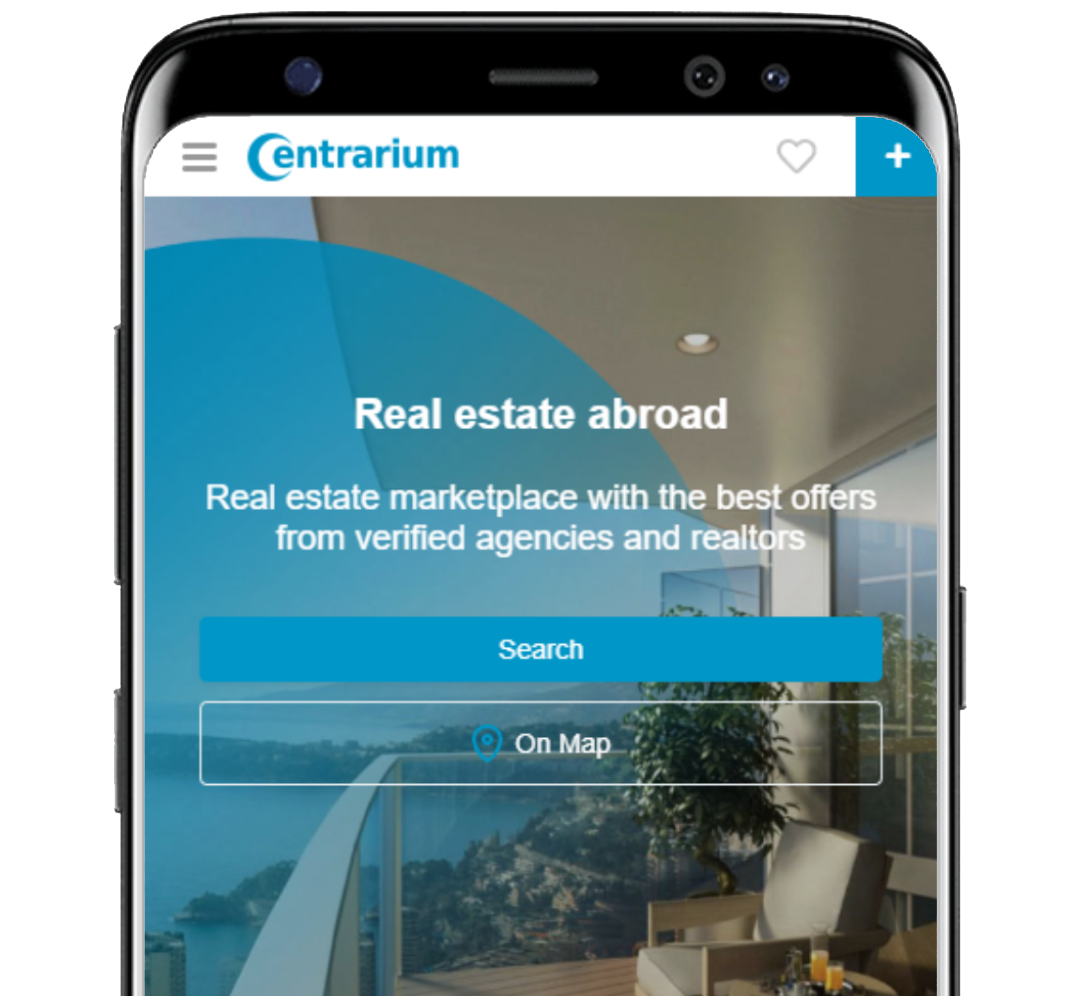
Asia
Asian countries also tend to attract wealthy foreigners who don't claim local jobs.
- Indonesia
Indonesia will offer five- and 10-year residency rights in Bali to those with at least 2 billion rupiah (about $130,000) in their bank accounts, according to a new regulation published on October 26, 2022. The innovation will take effect 60 days after the decree is issued.Real Estate in Indonesia 5
Individual
5
Individual 9
Individual
9
Individual 11
House for sale in the mountains in Bali (Bali) 150m² 1 floors
11
House for sale in the mountains in Bali (Bali) 150m² 1 floors150
3
2
2
Bali, Bali, Jalan Bisma, No.45Individual 9
VRC - Vip Realty Club
9
VRC - Vip Realty Club - Malaysia
At the end of 2022, the Malaysian government, together with the Malaysia Digital Economy Corporation (MDEC), announced the launch of a new visa for digital nomads under the DE Rantau program. The Professional visit pass (Pas Lawatan Ikhtisas, PLIK) allows for a stay of 3 to 12 months with the option to extend for an additional period of up to 12 months. Close family members of the main applicant (spouses, civil partners, minor children under 18 years of age, as well as children with disabilities without age restrictions) can participate in the program.
The program involves accommodation of participants in special DE Rantau “hubs” (pre-checked accommodation equipped for digital nomads). The list of hubs available for accommodation can be found on the official DE Rantau website. The applicant's profession must be related to IT, digital marketing or digital content creation. Annual income should be at least $24,000. Health insurance, a criminal record certificate and a certificate of higher education will also be required. Candidates need to register on MDEC's foreign nomad portal, fill out an application and attach scans of the required documents. The processing time for the application is six to eight weeks. If approved, it will take another week for the visa to be pasted into the passport. - UAE
The program for remote workers in Dubai is designed for foreigners with high incomes. Remote workers earning from $5,000 per month can move to the emirate with their families. This option is also available to company owners who manage their business for at least a year and receive a monthly income of $5 thousand or more. The residence permit is issued for one year with the possibility of extension. Program participants will receive residence cards that will allow them to rent housing, connect telephone and internet, open bank accounts, send their children to school and receive medical services (medical insurance will have to be paid separately). The cost of the residency permit will be $611. This amount includes a $287 application fee, processing fees, health insurance premiums, and obtaining an ID card.Real estate in UAE 14
Apartment 2-room 1+1 in Sharjah (center) 57.18m² 1 floor
14
Apartment 2-room 1+1 in Sharjah (center) 57.18m² 1 floor57.18
2
1
1
1
Sharjah (center), 8F74+FV, ШарджаVRC - Vip Realty Club 3
VRC - Vip Realty Club
3
VRC - Vip Realty Club 7
Individual
7
Individual 2
VRC - Vip Realty Club
2
VRC - Vip Realty Club - Thailand
A visa for digital nomads in Thailand is at the discussion stage, but the main details are already known. The country's authorities plan to expand the use of the multiple-entry smart visa, which was introduced in 2018 but has not yet gained widespread popularity. Foreigners presenting a contract with an employer abroad for a period of six months or more and proving qualifications and experience will be allowed to stay in the country for up to four years, with the possibility of bringing their families. In addition, there will be no need to report to immigration during the first 90 days of stay, a standard procedure for foreigners. Thailand also has a long-term resident visa category (long term resident visa), which allows you to live and work in the country for up to ten years.
In May 2022, the government decided to reduce the fee for a residence permit to 50,000 baht ($1,500), making it attractive to digital nomads. Visa applicants must prove an employment contract or contracting agreement with a Thai or foreign company and have at least five years of relevant work experience in the last ten years. The applicant's income must be at least $80,000 for the last two years. If income is lower, the applicant must have a master's degree, raise funding or own intellectual property. Health insurance with at least $50k in coverage for the first ten months in the country or opening a deposit of at least $100k in a local bank or abroad 12 months prior to visa application will also be required. In addition, LTR visa holders may include spouses and up to four children under the age of 20 in the application.Real Estate in Thailand 16
Apartment 2-room 1+1 in Pattaya 37m² 5 floor
16
Apartment 2-room 1+1 in Pattaya 37m² 5 floor37
2
1
1
5
Pattaya, Паттайя, Phratamnak, Kasetsin 4 AlleyIndividual 20
Apartment 1-room 1+0 studio in Pattaya (Jomtien) 23m² seaside 7 floor
20
Apartment 1-room 1+0 studio in Pattaya (Jomtien) 23m² seaside 7 floor23
1
1
1
7
Pattaya, Jomtien, Паттайя, ДжомтьенIndividual 7
Individual
7
Individual 18
Apartment 1-room in Bangkok (center) 45m² seaside 2 floor
18
Apartment 1-room in Bangkok (center) 45m² seaside 2 floor45
1
1
1
2
Bangkok (center), Sabahattin Çakmakoğlu Caddesi, 158VRC - Vip Realty Club - Sri Lanka
Sri Lanka's Cabinet in July 2021 announced plans to launch entry permits for digital nomads for one year on an extended tourist visa. Currently, the country can be entered on a tourist visa for 30 days with the option to extend up to 270 days. A visa extension for 30 to 90 days costs $60-100 (depending on the nationality of the tourist). Extension for 90-180 days will cost $150, free of charge for US citizens. Extension for 180-270 days costs $200. Visa violators are fined $500. - Taiwan
Taiwan does not have a program specifically designed for digital nomads, but there is a golden employment card (Golden Card) for up to three years that is suitable for professionals, freelancers and self-employed in one of eight in-demand fields (e.g. law, science, finance). The Gold Card combines a work permit, a resident visa, an Alien Resident Certificate (ARC) and a multiple entry permit. Digital nomads can apply for the card as it does not impose restrictions regarding employment and employer. However, applicants must prove above the national average income level of $2,000 or more per month. The cost of applying for the card ranges from $100 to $310 depending on your nationality and length of stay.
Islands
Island nations located in the Caribbean Sea and other warm seas and oceans are actively developing programs for digital nomads. Most of these countries have both common pros and cons. They offer life in a tropical climate surrounded by amazing plants and animals. However, it can be a long drive to get to the islands, and life there is often quiet and uneventful. In addition, many programs are geared toward residents of the United States or Canada.
- Anguilla
This Caribbean island is a self-governing British territory. Remote workers can reside here for up to 12 months. The requirements are standard: a contract with an overseas employer or business ownership documents, a brief description of the work to be done and a criminal record certificate. Health insurance is not required but is recommended.
Visa cost:
— For a single applicant — $2k.
— For a family of up to four persons (applicant, spouse and dependents: natural or adopted children under 26 years of age or other relatives dependent on the applicant) — $3 thousand.
— For each additional dependent — $250. - Antigua and Barbuda
Antigua and Barbuda has launched a program for digital nomads called Nomad Digital Residence (NDR). The residency permit is granted for two years, with the option to relocate with family. Applicants and their relatives are required to provide a criminal record certificate, health insurance and proof of employment. The applicant must also prove the means to live in the country with an expected income of at least $50,000 for each of the two years of residence permit. Application processing fees:
— $1,500 — for a single applicant
— $2 thousand — for a married couple
— $3 thousand — for a family of three or more people - The Bahamas
The Bahamas program is called BEATS (The Bahamas Extended Access Travel Stay). This program allows you to live on the islands, located in the Atlantic Ocean off the coast of Florida, for 12 months with an option to extend up to three years. Digital nomads must prove they are working or studying remotely and have health insurance. US, Canadian, EU and UK citizens are in a privileged position. The rest of us will have to pay a significant amount for the opportunity to live in the Bahamas. The state fee for each application is $25. The fee for participation in the program is $1 thousand for the applicant and $500 for each family member. For students, the fee is $500. - Barbados
Barbados Welcome Stamp is a program for those who want to live in Barbados in the Caribbean. Relocation is possible for 12 months with the possibility of visa extension. It requires proof of income from $50k per year and payment of a fee: $2k for a single applicant and $3k for a family. Digital nomads must confirm their remote work and have health insurance. - Bermuda
In Bermuda (an overseas territory of the UK), digital nomads can reside in the Work from Bermuda program for a period of one year. To participate, it is necessary to prove employment or study outside the country, provide a certificate of no criminal record and health insurance. The program does not require a minimum income, but it should be taken into account that this is one of the most expensive countries in the world, so you need a high stable income. The fee for a “residency certificate” is $263. After a year it can be renewed, but the decision will be made on an individual basis and will require a new application. - British Virgin Islands
In the fall of 2020, the British Virgin Islands, a dependency of the United Kingdom, announced the launch of the Invest and Stay program. This program was designed for both remote workers and investors, which would allow participants to hire employees. There were also plans to identify priority areas of the economy in which investments would count towards participation in the program. However, more than a year has passed since then, and specific details have not yet been announced. - Grenada
In May 2021, Grenada approved a bill regulating the granting of long-term visas to foreigners working remotely. The law was to come into effect in October, but no further announcements have been made for 2022. What is known is that visa applicants must demonstrate income from a foreign source of at least $37,000 per year. Applicants are expected to be required to stay in official accommodation facilities (hotels, apartments and guesthouses). They will be allowed to bring dependents, including parents and grandchildren. However, it should be noted that children will not be able to be enrolled in public schools. Health insurance will be required for all arrivals. The application fee for the principal applicant will be $1,500, for a family of up to four — $2,000, and for each additional dependent — another $200. - Dominica
Dominica has launched a program called Work In Nature (WIN). Under this program, digital nomads can obtain a visa for a year and a half. This requires proof of an expected income of $50k or more, as well as a $100 application fee. The visa fee is $800 for single applicants and $1,200 for families. From the documents will require a certificate of no criminal record, health insurance and a letter from an employer or bank. Participants of the program continue to pay income tax in the country of permanent residence. - Cape Verde
Cabo Verde is a group of ten large and eight small islands located in the Atlantic Ocean about 600 kilometers off the west coast of Africa. The Remote Working Cabo Verde program offers the opportunity to reside on these paradise islands for six months with the possibility to extend for the same period of time. Participation in the program is available to nationals from all countries in Europe, North America, the Community of Portuguese Speaking Countries (CPLP) and the Economic Community of West African States (CEDEAO). To participate, you will need to prove your income for the last six months: from €1,500 per month for an individual applicant and €2,700 per month for a family. Health insurance is also required. The visa fee is €20 and the airport tax is €34. - Caymans
The Cayman Islands, located in the Caribbean Sea and an overseas territory of the UK, offer the Global Citizen Concierge Program (GCCP), which allows remote workers to live there for up to two years. Single applicants must prove an income of $100,000 per year, couples — from $150,000, and families with children — from $180,000. A criminal record, health insurance and a bank statement will also be required. The cost of the certificate for two people is $1,469 per year, with $500 added for each dependent. In addition, a bank fee of 7% of the total amount must be taken into account. - Curaçao
Curaçao is an island in the Caribbean Sea and a self-governing state entity within the Netherlands. Under the @Home in Curaçao program, remote workers, self-employed and investors can obtain a visa for six months, renewable for the same period. The rules for participation are simple: you need proof of remote work, health insurance and a return ticket. The participation fee is $294. Tax residency does not change under this program. - Mauritius
Mauritius is an island nation in the Indian Ocean, located 900 kilometers from Madagascar. Under the Premium Travel Visa program, remote workers, tourists and retirees can obtain a visa for one year with the possibility of extension. The application requires proof of an income of at least $1,500 per month for each applicant plus $500 for each dependent under the age of 24. Health insurance and proof of accommodation booking will also be required. The visa is issued free of charge. A foreigner who resides in Mauritius for more than 183 days per year becomes a tax resident. - Montserrat
Montserrat is a small island in the Caribbean Sea and a British Overseas Territory with only 5,000 people. The program for digital nomads is called Montserrat Remote Work Stamp and allows entry to the island for up to 12 months. Renewal requires a second application. The permit requires an annual income of $70k or more. Health insurance, a criminal record and proof of employment are also required. The state fee is $500 for a single person, $750 for a family with up to three dependents and $250 for each additional family member. - Seychelles
The archipelago of 115 islands in East Africa offers the opportunity to work remotely for a month to a year. The conditions of the Seychelles Workcation program are very optimal: you must provide proof of employment or business ownership and have health insurance. The application fee is €45. - St. Lucia
The Saint Lucia Digital Nomad Visa, known as the “Live it” program, is designed for remote workers, freelancers and students. The visa is issued for up to one year. There are no minimum income requirements, but it is necessary to prove that you have sufficient funds to live in the country. A criminal record certificate, proof of residence in St. Lucia, return tickets and an employment or correspondence study agreement will also be required. The fee for a long-term visa is $75 and the processing time is about five business days.
North America
- Canada
There are no clear income requirements for a digital nomad in Canada. In the summer of 2023, the Canadian government announced the launch of the Canada Digital Nomad Visa program, which is designed for employees working remotely for foreign companies, as well as for freelancers.Citizens from the above categories can come to Canada and stay there for up to 6 months. If during this time they find a job in a Canadian company, they can apply for a work permit or even permanent residency.There are no clear requirements for the income of applicants, but it is necessary to have a minimum of $7 to $10 thousand in a bank account.Administrative fees are about CAD 100 (about $75).
Install our app and get all the tools you need to search for real estate abroad in your smartphone! The mobile application will allow you to quickly access your personal account, manage your favorite properties and track your requests, directly exchange messages with sellers and buyers.

Latin and South America
Latin America attracts with its warm climate and affordable prices. However, the region has some common disadvantages: long flights and relatively high crime rates. In addition, many countries have a low standard of living due to problems such as poor infrastructure and poor healthcare.
- Belize
In February 2021, Belize launched the Work Where You Vacation program, which aims to attract tourists from the U.S. and other countries for extended stays in the country. The program allows you to work remotely from Belize for six months with the possibility of extension. Participants need to provide an employment contract or confirm a minimum income of $75 thousand for an individual applicant or $100 thousand for a family. Availability of the necessary funds must be confirmed by a notarized bank statement and account statement. The package of documents also includes a certificate of criminal record and health insurance with a minimum coverage of $50 thousand. For participation in the program must pay a stamp duty of $ 248 for an adult and $ 99 for a child under 18 years of age for each month of stay in the country. - Colombia
In late July 2022, Colombia's Ministry of Foreign Affairs published a new immigration law that went into effect on October 22, 2022. To obtain a two-year digital nomad visa, an applicant must:
— work for a foreign company;
— provide bank statements showing monthly income of at least three minimum legal minimum wages (3 million pesos or $900);
— submit a letter in Spanish or English from one or more of the foreign companies to which he or she provides services;
— have health insurance with coverage in Colombia for those who plan to permanently reside in the country.
The application fee is $52 and the visa fee is $170. A visa can also be obtained by those who want to start a digital technology business in Colombia. However, official employment in the country will not be possible with this visa. - St. Lucia
The St. Lucia Digital Nomad Visa, also known as the “Live it” program, is for remote workers, freelancers, and students. The visa is issued for a period of up to one year. There are no minimum income requirements, but it is necessary to prove sufficient funds to live in the country. A criminal record certificate, proof of residence in St. Lucia, return tickets and an employment or correspondence study agreement will also be required. The long-term visa application fee is $75 and the processing time is about five working days. - Costa Rica
Costa Rica has announced the launch of a visa for digital nomads in the summer of 2021. On August 11, the country's president signed into law the Digital Nomads Law, which defines residency for foreign remote workers. According to this law, remote workers can reside in Costa Rica for one year with the possibility of renewal for another year. Foreigners are exempt from paying income tax in the country. To obtain a visa, the applicant must have a monthly income of at least $3 thousand for the last year or $4 thousand if he moves with family members. It is also necessary to confirm that the applicant will be able to earn the specified income while abroad. Medical insurance is also required. The cost of visa processing is about $100. - Mexico
The Mexican temporary resident visa does not formally belong to the category of visas for digital nomads, but essentially meets their requirements. The visa is issued for six months with an option to renew for up to four years. After four years, it is possible to apply for permanent residency. To move to the country must confirm the presence of the amount of $50 thousand in a bank account for the last 12 months or monthly income of $3 thousand for the last six months. Visa fee is $483. - Panama
In May 2021, Panama passed a decree introducing Short Stay Visas as a Remote Worker. The permit is issued for nine months with the possibility of renewal for the same period. The applicant must prove an annual income of $36,000 or more. Medical insurance and proof of employment relationship with a company located abroad will also be required. The foreigner undertakes not to work for Panamanian companies and to leave the country at the expiration of the visa. Administrative fees are $300. - Brazil
Brazil was the first country in South America to implement a program for digital nomads. It went into effect on February 24, 2022. The remote work visa allows foreigners to reside in Brazil for up to one year, renewable for another year. Applicants must prove their status as a digital nomad by providing a contract with a foreign employer or documentation of a business outside Brazil. The applicant must have a minimum monthly income of at least $1,500 or show $18,000 in a bank account. Medical insurance and a certificate of no criminal record will also be required. The cost of consular fee for visa issuance is about $123. - Argentina
In May 2022, the Argentine government announced the launch of a residence permit program for digital nomads. This visa allows foreigners working outside the country to work remotely from Argentina for up to six months with the possibility of renewal. It is important to note that only foreigners who do not normally require a visa to enter Argentina can participate in the program. Candidates must provide documents about their work abroad (employment contract, income information) and attach a resume describing their professional experience and level of education. Unlike other programs, there is no minimum salary for obtaining a residence permit. Administrative fees are $200 per applicant. - Uruguay
The residence permit for digital nomads in Uruguay is issued for six months with the possibility of renewal for a further period of the same duration. The main requirements for applicants are:
— Having a document of employment with a foreign company as an employee, freelancer or business owner outside of Uruguay.
— Certificates of absence of criminal records for the last five years from all countries where the applicant has lived for more than six months (required when extending the primary residence permit for the next six months).
— Proof of sufficient income to live in the country. The applicant must complete an affidavit stating that he or she has sufficient income to live in Uruguay.
Family members cannot be included in a joint application; all must submit separate applications for a residence permit. Since there are no clear requirements for the necessary income level, it is not difficult to get approval. Applications for a digital nomad's residence permit are submitted directly from Uruguay through the state's e-government portal. It is possible to enter the country as a tourist. If the foreigner resides in the country for at least six months a year for two years, he is eligible to apply for permanent residence. - Ecuador
In October 2022, the Ecuadorian government launched a two-year residence permit program for digital nomads. It provides foreign nationals who own a company or work remotely for a company outside of Ecuador the opportunity to live and work in the country without local sponsorship. The Rentista for Remote Work (Rentista for Remote Work) is issued for up to two years with the possibility of unlimited renewal if the criteria are met. After three years of temporary residency, you can apply for permanent residency after meeting the minimum 90 days per year residency requirement in Ecuador.
The applicant must demonstrate income from a foreign source of at least three base salaries (Ecuador's current prime rate is $425), which is $1,275. This amount must be increased by $250 for each dependent family member. It is also possible to demonstrate an amount equal to 36 average Ecuadorian wages for each year of residency. Additionally, a certificate of no criminal record and health insurance must be provided. The cost of visa processing is approximately $460. The processing of a digital nomad visa application at Ecuadorian consulates takes an average of seven working days. Only citizens of countries approved on the list of the Ecuadorian Ministry of Tourism can apply.
Africa
- Republic of South Africa (RSA)
A serious medical examination is required to obtain a visa to South Africa. On March 28, 2024, South Africa officially launched the Digital Nomad visa, becoming the fourth African country to offer the opportunity to live and work remotely. The new South African digital nomad visa is classified as a visitor visa and can be issued for up to three years. Key criteria for potential applicants include:
— Proof of employment with a foreign employer and having an income of ZAR 1 million (approximately $53,600) per year.
— Provision of health insurance for the entire period of stay.
— Provision of a certificate of no criminal record.
— Proof of accommodation that has been rented or booked for the duration of the visit.
It is not yet clear whether freelancers can apply for this visa, and whether a minimum income of ZAR 1 million ($53,600) is the required pre- or post-tax amount. - Namibia
In October 2022, Namibia launched the Digital Nomad Visa, which allows up to six months residency in the country, renewable for the same period. The main criterion is financial solvency and proof of stable income from a foreign source. The applicant must demonstrate an income of $2,000 per month, plus $1,000 for a spouse and $500 for each child. A document proving employment or other source of income outside the country, health insurance and a criminal record certificate must also be provided. The cost of the visa is $65 upon arrival in the country.
In this review we have considered only those countries that have introduced special visas or residence permits for digital nomads. There are other grounds for relocation. For example, a self-employed visa assumes the presence of clients or professional practice in a new country, so it is required to confirm a diploma, submit a resume, a business plan and so on. In the case of a residence permit for the financially independent, it is usually required to show an amount in an account sufficient to live on for a year. For a digital nomad in this situation, it is sufficient to demonstrate the required level of income in a contract with an employer or monthly income according to a bank statement.

Cyprus continues to be one of the most attractive countries for work, study and business among European and post-Soviet states. We offer an overview of the most popular professions in Cyprus in 2025: top vacancies, employment specifics, labor market trends and advice for job seekers.

Germany in 2025 remains one of the most attractive destinations for IT specialists, offering high salaries, innovative projects and ample opportunities for professional growth. The article presents a rating of the top 10 best German employers for IT professionals, analyzes key labor market trends and gives advice on how to effectively find a job in Germany. Germany is ready to offer you unique opportunities and development prospects.

In this article we will look in detail at the recent changes in the Finnish labor market due to the reduction in the number of work permits issued to foreign nationals. The key economic, demographic and social factors influencing this process will be analyzed, as well as the prospects and new directions of development of the Finnish labor market.




















